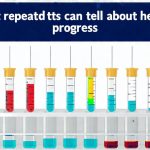Extended periods of bed rest, whether due to illness, injury, post-surgery recovery, or other circumstances, can significantly disrupt many bodily functions. While often necessary for healing, prolonged inactivity introduces a cascade of physiological changes that frequently lead to unpleasant and sometimes concerning side effects. One of the most common, yet often underestimated, complications is constipation flare-ups. This isn’t simply about infrequent bowel movements; it’s a complex issue rooted in alterations to gut motility, fluid balance, dietary habits, and even psychological factors associated with reduced activity. Understanding why bed rest leads to constipation – and how to proactively manage it – is crucial for improving comfort, preventing complications, and supporting overall recovery during periods of limited mobility.
The digestive system relies heavily on movement and gravity to efficiently process food and eliminate waste. When we’re active, muscle contractions in the intestines propel stool along, aided by daily activity that jostles and encourages peristalsis – the wave-like muscular contractions responsible for moving things through the digestive tract. Bed rest dramatically reduces these natural processes. Coupled with potential changes in diet (often reduced intake or altered food choices due to illness or lack of appetite), decreased fluid consumption, and sometimes medication side effects, it creates a perfect storm for constipation to develop or existing conditions to worsen. This isn’t just about discomfort; severe constipation can lead to bloating, abdominal pain, nausea, even an increased risk of complications like hemorrhoids or fecal impaction. If you suspect dietary changes are contributing to your issues, consider exploring signs from test results that might call for a more comprehensive overhaul.
The Physiological Mechanisms Behind Bed Rest Constipation
The relationship between bed rest and constipation is multifaceted, extending beyond simply “less movement.” At a fundamental level, reduced physical activity directly impacts intestinal motility. The intestines become sluggish due to lack of stimulation – they essentially ‘forget’ how to efficiently contract and move waste along. This diminished peristalsis allows more water to be absorbed from the stool in the colon, making it harder, drier, and more difficult to pass. Furthermore, prolonged bed rest often leads to decreased muscle tone throughout the body, including abdominal muscles that play a role in supporting bowel function.
Beyond motility, metabolic changes contribute to the problem. Reduced activity lowers overall metabolism, impacting digestive processes and potentially leading to slower gastric emptying – meaning food stays in the stomach longer. This can alter gut flora, as the longer transit time allows for increased bacterial fermentation, potentially contributing to gas and bloating alongside constipation. It’s also important to note that many reasons requiring bed rest (surgery, injury) often involve pain medication, particularly opioids, which are notorious for slowing down bowel function as a side effect. Understanding how your body responds during these periods is crucial; tracking digestive data over time can provide valuable insights.
Finally, the psychological impact of being confined to bed shouldn’t be underestimated. Depression and anxiety – common companions to prolonged illness or immobility – can further disrupt digestive processes, exacerbating constipation symptoms. A vicious cycle can develop where discomfort from constipation leads to increased stress and anxiety, worsening the constipation, and so on. Recognizing this interplay between physical and psychological factors is essential for effective management.
Strategies for Preventing Constipation During Bed Rest
Prevention is always better than cure when it comes to managing constipation during extended bed rest. A proactive approach can significantly reduce the likelihood of experiencing uncomfortable flare-ups and minimize potential complications. Here’s a breakdown of key strategies:
- Hydration: Aim for at least 8 glasses of water per day, unless specifically restricted by a healthcare professional. Water helps soften stool and facilitates its passage through the intestines. Consider incorporating hydrating foods like soups, fruits (watermelon, peaches), and vegetables into your diet.
- Dietary Adjustments: Even with reduced appetite, prioritize fiber-rich foods whenever possible. Good choices include prunes, oatmeal, whole-grain bread, beans, and cooked vegetables. Avoid processed foods, excessive dairy, and sugary drinks, as these can contribute to constipation. Small, frequent meals are often easier to digest than large ones.
- Gentle Movement (as allowed): Even minimal movement can make a difference. Talk to your doctor or physical therapist about safe range-of-motion exercises you can perform in bed. This might include ankle pumps, knee bends, and gentle arm movements. If mobility allows, short periods of sitting up or transferring to a chair can also stimulate bowel function. It’s important to understand what you can learn from testing after switching diets as well, even if the switch is simply about increasing fiber intake.
The Role of Bowel Management Programs & Medical Consultation
For individuals anticipating long-term bed rest – post-surgery recovery for example – a formalized bowel management program developed in consultation with healthcare professionals is often beneficial. These programs typically involve scheduled toileting, medication adjustments (if appropriate), dietary modifications, and activity recommendations tailored to the individual’s needs. These programs are particularly important when opioid use is involved.
- Regularly scheduled toilet visits, even if you don’t feel the urge, can help establish a routine and encourage bowel movements.
- A healthcare provider may recommend a stool softener or mild osmotic laxative (like polyethylene glycol) to prevent stool hardening, but this should always be done under medical supervision. Avoid stimulant laxatives as prolonged use can lead to dependency.
- Careful monitoring of medication side effects is crucial. If you suspect your medications are contributing to constipation, discuss alternatives with your doctor. You may also want to learn what to expect from a comprehensive stool analysis if medication changes aren’t helping.
Addressing Existing Constipation & When To Seek Medical Attention
If constipation develops despite preventative measures, it’s important to address it promptly. Lifestyle adjustments – increasing fluid intake, adding more fiber to the diet, and gentle exercise – should be the first line of defense. Over-the-counter remedies like bulk-forming laxatives (psyllium husk) or stool softeners can provide temporary relief, but again, use them cautiously and follow package instructions.
However, certain symptoms warrant immediate medical attention. These include:
– Severe abdominal pain
– Bloating accompanied by nausea and vomiting
– Inability to pass gas
– Rectal bleeding
– Fecal impaction (inability to have a bowel movement despite feeling the urge)
These symptoms could indicate a more serious underlying issue, such as a bowel obstruction or severe hemorrhoids. Do not attempt to self-treat these conditions; seek professional medical evaluation and guidance. If you’ve been experiencing ongoing digestive issues, it may be time to explore signs from testing that need follow-up with your doctor. Furthermore, if your constipation is related to an underlying health condition like an eating disorder, it’s important to understand GI diagnostics used in recovery from eating disorders. Ultimately, managing constipation during extended bed rest requires a holistic approach that combines proactive prevention, careful monitoring, and timely intervention when needed – all under the guidance of your healthcare team. Remember, prioritizing digestive health is an integral part of overall recovery and well-being. Recognizing gut lining damage can also help you understand the root cause of some issues.


















